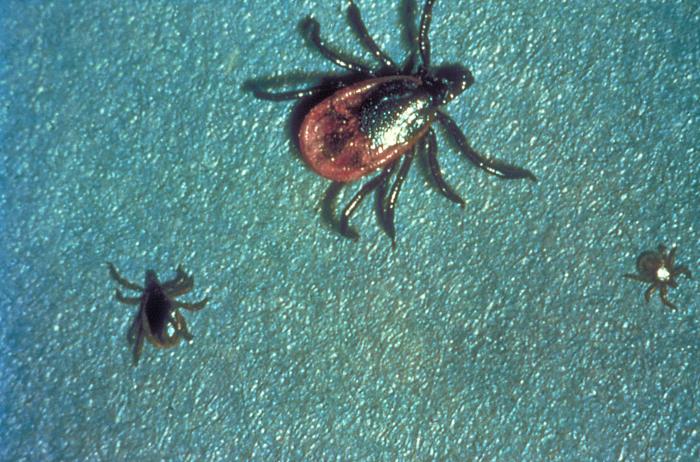By NewsDesk @infectiousdiseasenews
Officials with the Maine Center for Disease Control and Prevention (Maine CDC) have confirmed a case of Powassan virus infection in a Maine resident, the first case of the tick-borne illness in the state since 2017. Maine has identified 11 cases since 2000.

The adult individual resides in southern Maine and has been hospitalized in New Hampshire. It is believed that the individual contracted the illness in Maine.
Powassan virus is transmitted to humans through the bite of an infected woodchuck or deer tick. While many people infected with Powassan virus do not experience symptoms, signs and symptoms can include fever, headache, vomiting, weakness, confusion, seizures, and memory loss. Long-term neurologic problems may occur, including infection of the brain or the membranes around the brain and spinal cord. Severe infection can result in death.
“Powassan, although rare, can be serious so it is important to be aware of your surroundings and take steps to avoid being bitten by ticks,” said Nirav D. Shah, Director of the Maine CDC. “Use caution in wooded and bushy areas and follow the No Ticks 4 ME approach to help reduce exposure to ticks and lower the risk of disease.”
Symptoms can begin from one week to one month after the tick bite. Unlike Lyme disease, Powassan virus does not result in a rash. There is no medication to treat Powassan virus infection, though people who develop severe illness may receive treatment for their symptoms.
The No Ticks 4 ME approach includes:
- Wearing protective clothing. Light-colored clothing makes ticks easier to see and long sleeves and pants reduce exposed skin.
- Using an EPA-approved repellent and always follow the label. Clothing and gear can be treated with permethrin for longer protection.
- Using caution in tick-infested areas. Avoid wooded and bushy areas with high grass and stay in the middle of trails whenever possible.
- Performing daily tick checks. Check for ticks immediately after exiting high-risk areas. Bathe or shower (preferably within 2 hours after being outdoors) to wash off and find ticks on your body. Conduct a full-body tick check. Also examine clothing, gear, and pets.


